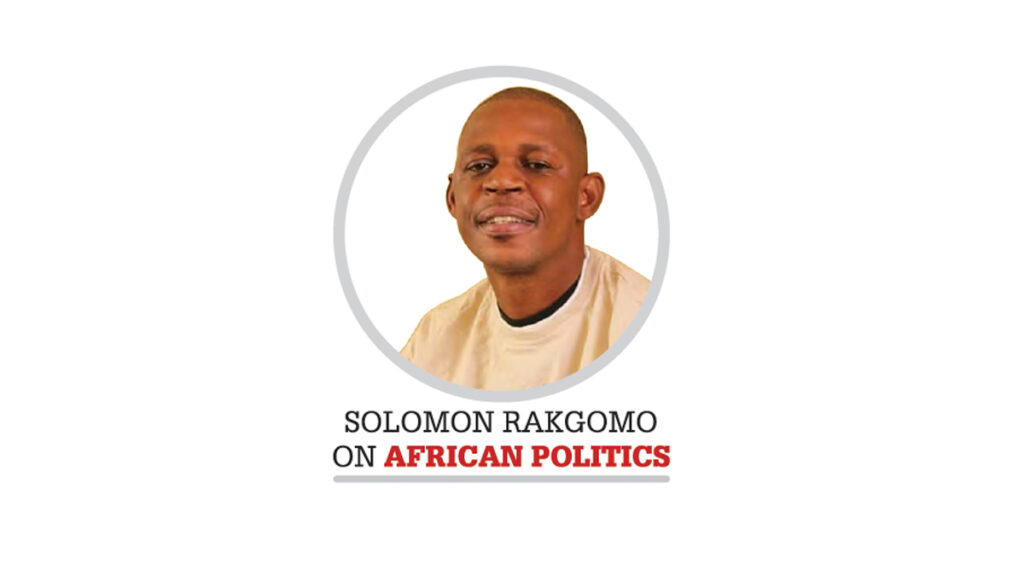SOLOMON RAKGOMO ON AFRICAN POLITICS
One thing which I have observed for many years in the African political landscape especially when analysts discuss security issues is that the threat of white collar crime to national security often receives little attention. White-collar crime, also referred to as commercial, financial, economic and corporate crime can describe a wide variety of crimes, which all typically involve crimes committed through deceit and motivated by financial gain. According to INTERPOL, it ranges from basic theft or fraud committed by individuals with ill-intentions to large scale operations masterminded by organised criminals with a foot on every continent. White-collar crime is regarded as a non-violent crime that enriches its perpetrators financially. According to the Federal Bureau of Investigations, these crimes are characterized by deceit, concealment or violation of trust and are not dependent on the application or threat of physical force or violence. The motivation for these crimes is to obtain or avoid losing money, property or services, or to secure a personal or business advantage. The difference between white collar crime and other forms of crime is that it usually involves people with high profiles such as business executives and in most cases the politically connected or the politicians themselves. Criminal acts of this nature usually involve large sums of money that in most cases have negative impacts on the economy and the livelihoods of some certain populations.
Even though mainstream discussions on white-collar crime regard it as non-violent crime for the financial gain of an individual, people must be aware that white-collar crime represents a serious threat to the socio –economic welfare of the people and therefore must be treated as a national security threat. This is because white-collar crime does have national security implications in that it destabilizes the economy and seriously curtails economic growth and employment creation. According to many research studies undertaken over the years, it has shown that many corporate entities as well as government departments have been victims of white collar crime across the continent of Africa. For example, the National Petroleum Fund scandal in Botswana, even though no one has been successfully prosecuted is a dent in the corporate governance integrity of this country. Large amounts of money disappeared and most of those implicated by the media are either the corporate elites or some politically connected individuals. These corporate and government white collar crime scandals are very common in many African countries and those who bear the brunt of these crimes are the ordinary people who in most cases are very poor. What is shocking about these crimes is that those suspected or perpetrators usually enjoy sympathy from some large sections of the public who in most cases are direct or indirect victims of such crimes. It is common that a petty blue crime suspect risks mob justice from the general public for stealing a cellphone while a white collar criminal suspect who is charged with a fraud amounting to millions of dollars will get sympathies from the people even though the criminal acts committed has a huge negative impact on the economic well-being of those sympathizers. That is where the national security threat of such heinous economic crimes is often overlooked in public discourse.
From what I have posited I can safely argue that unethical behaviour leading to white-collar crime are a reality in African public and private organisations, which necessitates pro-active preventive actions as these are threat to national security. This is because the corrupt nature of white collar crime threatens economic growth, social development, the consolidation of democracy, and national morality. Furthermore white-collar crime in government is the biggest threat to business and investment, overtaking unemployment, the infrastructure backlog and labour instability. This means that preventive measures should be implemented in order to rectify the situation. One way to prevent white-collar crime in a pro-active manner is to utilise the corruption busting bodies in an efficient way so that they can independently fight these crimes without undue influence from the political elites. There is a huge need for countries such as Botswana to have strong justice systems and efficient low enforcement agencies and public\private sector that adheres to the laid out ethics of good governance, transparency accountability and rule of law.
